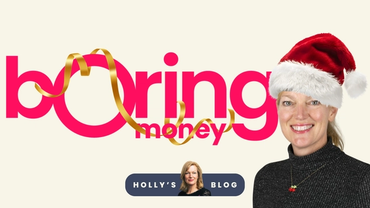Should I worry about Hargreaves Lansdown as a result of the legal challenges?
By Holly Mackay, Founder & CEO
22 Nov, 2024
The Woodford saga has been rumbling since 2019 and this week there is news of a fresh legal challenge for Hargreaves Lansdown. The group now faces a group claim from more than 5,000 people, represented by claims management firm RGL Management.

This is an emotive issue so to be clear – the below is my opinion and my interpretation only. I personally lost a small amount of money from the Woodford funds. I don’t know Neil Woodford and have never met him. I have no financial interest in any of the firms mentioned, nor any commercial incentive to say anything I do here. Phew!
If we rewind for a moment back to 2019, Neil Woodford was the darling of the funds management industry and his flagship fund – Woodford Equity Income – was seen as a must-have by many. In my opinion, his undeniable historic success went to his head and he behaved with a degree of arrogance in how he managed the money in his new fund. There are rules around liquidity – how easy it is to sell investments in any fund. If you have a fund, then you need to be able to sell enough things quickly, to make sure you can pay out anyone who says ‘I’m out, give me my money back.’ This is why commercial property funds have come a cropper in the past. If everyone in Commercial Property Fund A wants to sell their units and get the proceeds quickly, that’s a problem. You can’t sell a shopping centre or a block of flats in a few days. It’s often the same with very small companies, where the number of shareholders is typically few, and often management own big slugs of the equity themselves and don’t want to sell. So liquidity for retail investors is not an uncommon headache in the industry.
Woodford packaged his fund up as a korma, but under all the packaging it was turning into a vindaloo. There are so many questions around this. Was it spicier than the rules allowed? Did it have more unlisted, or illiquid assets than was allowed? When did people know this? Who should have called him out on it? The regulator? The custodian? The fund administrators/or ‘ACD’ (Authorised Corporate Directors)? The investment supermarkets who had his products on the shelves and thought it was good?
It is not as straightforward as it sounds. The fund administrator/ACD, Link Solutions, listed some of the fund’s small, specialist holdings on the Guernsey Stock Exchange, after designating it an approved exchange. The effect of this was to suddenly remove a dollop of unlisted stuff (the amount of which is restricted in the rules and is typically difficult to buy and sell easily, ) put it onto a stock exchange and then say it is now listed – ta da! This could of course be perfectly within the rules. Or you could say it’s a bit like painting a donkey with black and white stripes and saying it’s a zebra. Was this OK? Was it just regulatory shapeshifting and stretching the rules? And who wrote what down and when!? It’s very hard to get answers to these questions.
When the fund was gated (the drawbridge pulled up so no investors can get in or out) the fingers started pointing. The problem in the mainstream media was this became a trial about how much money people had lost, or the performance of the fund. Rather than the main question which was whether the fund was invested in more illiquid assets than was strictly allowed in the rules. And the British regulator the FCA started making tense noises with the Guernsey regulator, and the fund administrators squabbled with the supermarkets, who at times seemed to have mostly kept very quiet in the hope that Hargreaves Lansdown would cop all the flack as the biggest guy who had held on to the end. Whilst the Treasury Select Committee shouted at everyone.
Hargreaves Lansdown is the largest DIY investment platform by a long way. And their opinion matters. So when their research team favoured a fund, retail investors bought it. The HL research team liked the Woodford fund and stuck with it, when others were bailing out. To be fair, the platform was not alone in sticking with the fund right up to the last – there was one major advised platform who also stuck with it, along with at least one other sizeable DIY platform. So there was – with the benefit of hindsight - mass industry myopia about this, or perhaps a naive hope that it would all come right in the end. Hargreaves suffer from being the most prominent promoter in the spotlight, and for holding on for the longest.
We could argue the investment pros and cons of this for days on end. If they believed that the investment case over the long-term was sound, and that investors should stick with the shorter-term poor performance, was this right? Would the fund have come good in the end, if the regulator and administrator had not stepped in? Would investors have got more money back this way, than the puny sums paid out after the various fire sales and the fund being forcibly wound up? We will never know the answer to this. But these questions are in fact just a side show. The main question – and the argument we should be focussing on – was the fund operating within the agreed limits and if not, did Hargreaves Lansdown (and others) know this and if they did, should they have taken action before they did? I have not personally seen detailed evidence on this point so cannot pass judgement.
Lots of pieces in this puzzle were far from ideal. The regulator was not as proactive as it should have been. Someone thought they were a genius with the Guernsey idea but investment alchemy has a habit of going wrong, especially when vulnerable retail investors are involved. Woodford played a determined, stubborn hand, and the noises from his camp were all of the ‘trust me, I know what I am doing’ type. Should promoters have readily accepted these re-assurances, or sought more details to protect their customers? If they had those details, why did they stick with it? The silence is deafening, and the only people who seem to have accepted any form of blame are Link, who have been heavily fined.
Hargreaves Lansdown has not made a public comment. Their latest annual report said this.
The Group operates in a highly regulated environment and, in the ordinary course of business, provides information to various regulators and authorities as part of informal and formal requests and enquiries. In addition, the Group receives complaints or claims in relation to its services from time to time brought by clients, investors or other third parties. These may be notified to the Group or directly to third parties, such as the Financial Ombudsman Service in the case of client and investor complaints investigated and not upheld by the Group. These include enquiries, complaints and a threatened claim relating to the LF Equity Income Fund (formerly the Woodford Equity Income Fund).
The Company received a letter purporting to be a pre-action letter from a law firm in March 2021. In June 2021, the Company rejected all the claims made for lack of a substantive basis of claim. The Company is aware that the law firm has since filed a claim form with the court against both Link Fund Solutions Limited and Hargreaves Lansdown Asset Management Limited (“HLAM”) for an unspecified amount in October 2022. As at the date of issuing these financial statements, the law firm has not yet confirmed that it has secured sufficient funding to progress the claim, HLAM has not been served with the claim form and no timetable has been set for the conduct of any claim.
For clients of Hargreaves Lansdown today wondering about the impact on them, the starting point is that there is no risk to your fund or share holdings on the platform - they are ring-fenced from the firm. Any cash held in your name on the platform is also separated from the firm by client money rules, so there is no reason to fear the future from a security aspect. Many people get confused with the FSCS rule which only protects up to £85,000 of cash with a bank – this is not the same issue, and all investors on platforms have their investments and cash (even if more than £85,000) ringfenced from the providers’ operating cash, so you are protected even if your platform hits the skids.
What is not known is how material any financial fines or claims might be, which could of course starve the platform of money to develop the proposition. This affair is soaking up management attention, and the prospect of legal fees and potential fines may constrain development of the proposition, or prevent them from becoming more competitive on charges. Hargreaves Lansdown is a large, heavily regulated beast and I don’t think there is immediate cause for their clients to be alarmed although this could be a protracted, distracting and expensive wrangle. The saga continues.
Post a comment:
This is an open discussion and does not represent the views of Boring Money. We want our communities to be welcoming and helpful. Spam, personal attacks and offensive language will not be tolerated. Posts may be deleted and repeat offenders blocked at our discretion.





